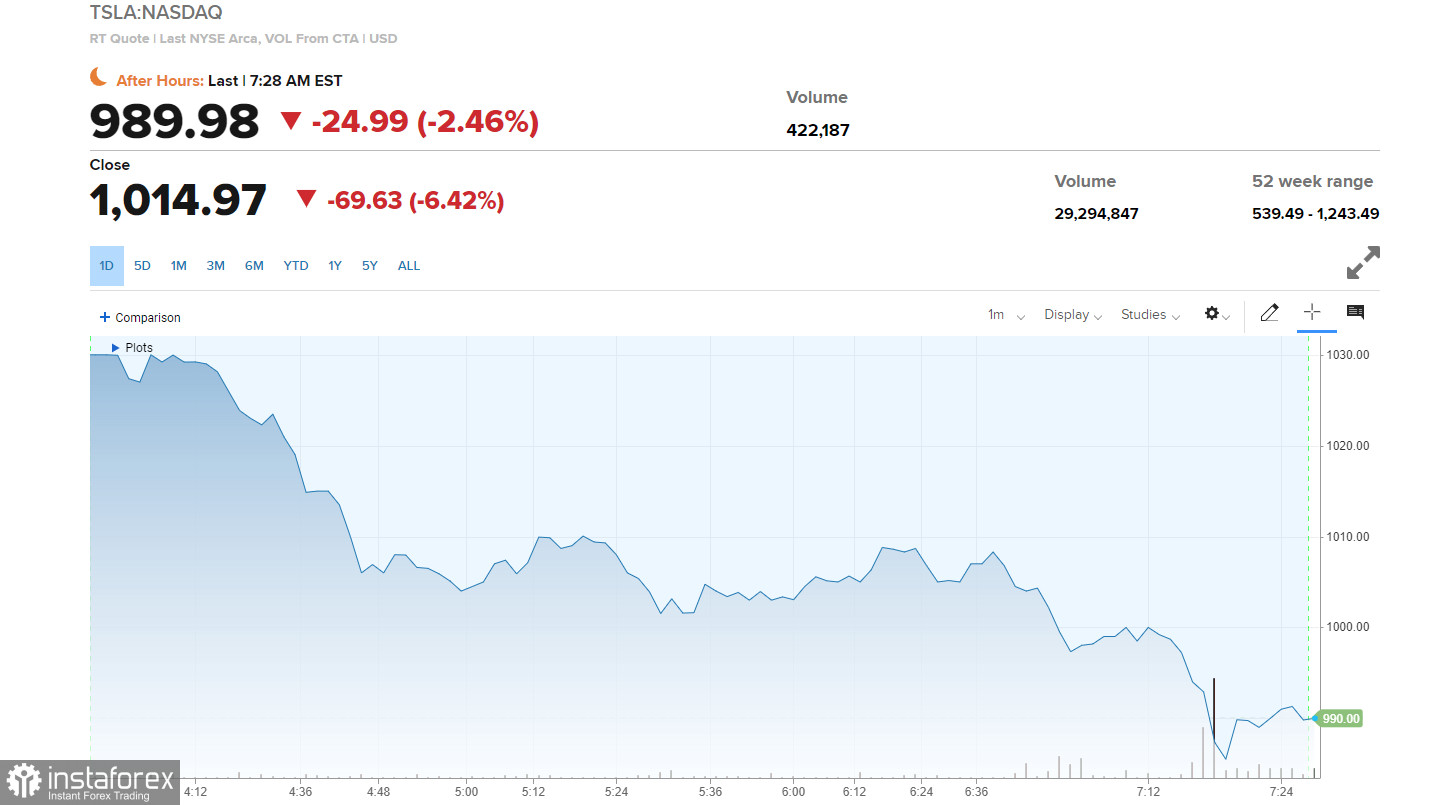The US stock market is losing steam amid the expectations of possible changes in the Fed's monetary policy. Additionally, traders are now hesitant to buy new shares due to uncertainty over the omicron strain and its impact on the global economy as well as the labor market.

Many analysts are widely expecting the Fed to abandon the dovish approach to monetary policy. As a result, the regulator is likely to tighten monetary policy by raising the key rate earlier than expected. According to the last comments of Fed's policymakers, the central bank may decide to double its QE reduction to $30 billion a month at its meeting in December this year. It is scheduled for the next week. The regulator may also give hints when to expect the interest rate hike as well as publish its economic outlook.
All these factors keep investors on their toes as it is still unclear how exactly the Fed may tighten its policy.
Futures for the main US stock indices rose slightly on Monday. The Dow Jones Industrial index showed a positive dynamic, while futures for the Nasdaq remained near Friday's closing level. The Dow futures grew by 259 points or 0.8%. The Nasdaq futures fell by 0.2%. The S&P 500 futures swelled 0.4%.
Investors are taking into account the risks associated with the omicron variant. According to the latest data, a new strain has been identified in at least 15 US states. Germany has imposed new quarantine restrictions. However, speculators sell their stocks of expensive tech companies and invest in the shares of companies from the services sector as well as in energy, industrial, and aviation companies. Additionally, stocks linked to the reopening of the economy gained on Monday, boosting sentiment on Dow futures.
On Friday, the Nasdaq Composite dropped by 1.92%. Wood's flagship active exchange-traded fund Ark Innovation declined by 5% on Friday as all of the fund's holdings are now in a bear market apart from two stocks. Teladoc Health, Zoom Video, Roku, Palantir, and Twilio registered steep losses. Tesla's shares were also in red.
A slower-than-expected increase in employment also contributed to Friday's selling. Nonfarm payrolls increased by 210,000 last month, while economists had expected the reading to total 573,000. "A softer payrolls print pulled the rug beneath risk sentiment," TD Securities wrote in a note to clients.
Let's move on to shares in the premarket trading:
American Airlines shares added nearly 2% in premarket trading. Carnival and Wynn Resorts shares grew by about 1%.

Tesla's shares declined by about 2.5% in the premarket trading on Monday after falling by more than 6.0% on Friday. The bearish sentiment prevails amid fears over the omicron variant, impacting companies engaged in the production of cars. Market participants believe that car manufactures may again face a shortage of chips and equipment. Given the uncertainty, investors may also want to lock in profits by selling off Tesla's shares, which have grown by more than 40% over the year. Looking at the chart, you can see that the recent correction from record highs looks like a tiny spike. If omicron continues to push markets down, Tesla's shares are likely to decrease deeper.
As for the S&P 500 index, bulls managed to push the quote to $4,512. Bears are also targeting this level. If the epidemiological situation worsens and the Fed provides hints about quicker-than-expected tapering of asset purchases, the index may return to $4,512. If it breaks through this level, it may well drop to $4,428 and $4,382. It is recommended to refrain from opening long positions after a fall as the downward potential is still quite strong. Bulls need to regain control over the $4,551 level to prevent another major wave of sell-off. Only after that, a correction to $4,599 may occur. Nevertheless, the price is unlikely to edge higher.
 English
English 
 Русский
Русский Bahasa Indonesia
Bahasa Indonesia Bahasa Malay
Bahasa Malay ไทย
ไทย Español
Español Deutsch
Deutsch Български
Български Français
Français Tiếng Việt
Tiếng Việt 中文
中文 বাংলা
বাংলা हिन्दी
हिन्दी Čeština
Čeština Українська
Українська Română
Română

